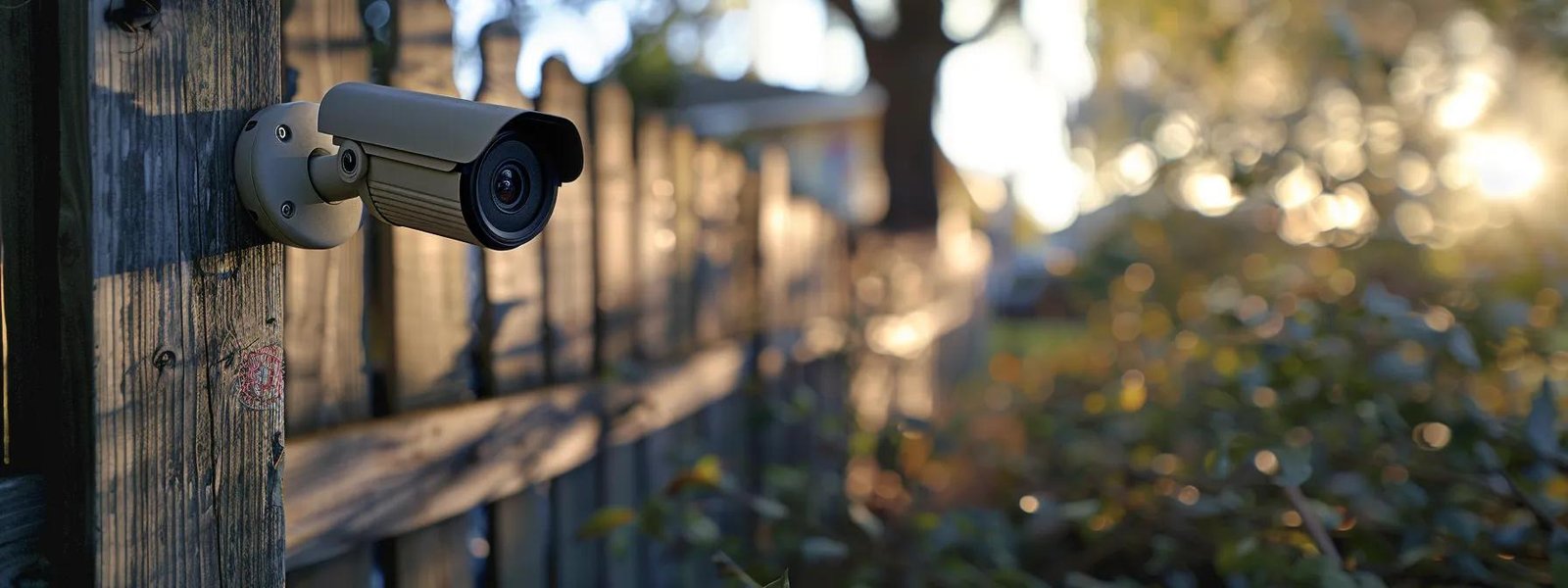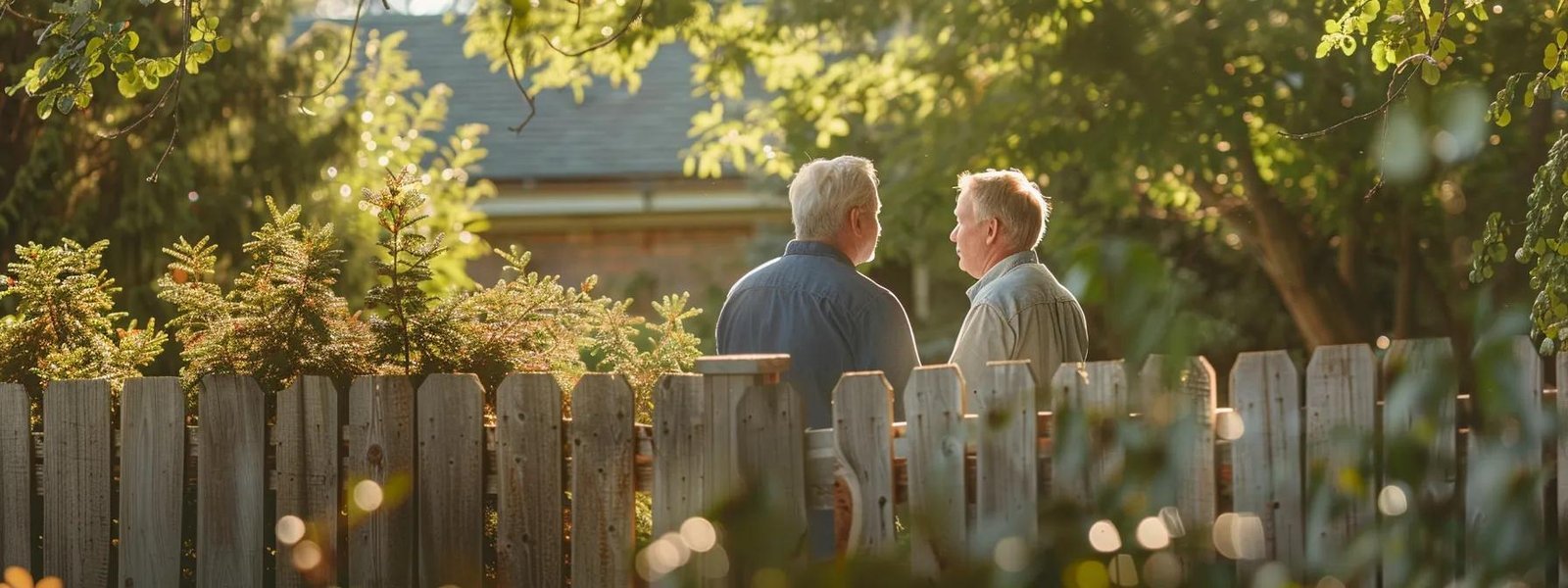
Do you need neighbor consent for security cameras? This question often arises for homeowners looking to enhance their safety with home security cameras. Understanding the legal framework surrounding security systems is crucial, as it can help avoid potential conflicts and legal issues, such as accusations of voyeurism. This article will cover the necessity of neighbor consent, best practices for respectful installation, and the legal implications of ignoring statutes. By engaging with this content, readers will gain clarity on how to protect their homes while maintaining good relationships with their neighbors.

Understanding the legal framework for home security cameras, including electrical diagnostics, is essential for homeowners considering installation. This section will cover federal laws affecting residential surveillance, state regulations that may apply, and the privacy rights of neighbors. Homeowners must be aware of legal liability issues, including wiretapping laws and the implications of motion detection technology, to ensure compliance and protect their interests.
Federal laws regarding residential surveillance primarily focus on privacy rights and the use of recording devices. Homeowners must be cautious when installing security cameras, especially hidden cameras, as these can raise legal concerns if they capture areas where individuals have a reasonable expectation of privacy, such as bedrooms or bathrooms. Law enforcement agencies may require a disclaimer about the use of surveillance footage, particularly if the recordings are intended for access control or security purposes.
State regulations regarding home security cameras vary significantly across different jurisdictions. Homeowners must understand that laws may require consent from neighbors if cameras capture areas beyond their property line, such as shared fences or common spaces. A reasonable person standard often applies, meaning that if a camera records areas where individuals have a reasonable expectation of privacy, such as a room in their home, it could lead to claims of harassment or legal disputes.
Privacy rights of neighbors are a critical consideration for homeowners installing a security system, especially when using devices like doorbell cameras. If a camera captures footage of a neighbor’s property, it may lead to complaints or legal disputes under privacy law. Homeowners should consult a lawyer to understand their obligations and ensure their surveillance practices do not infringe on the privacy rights of others.

Homeowners must understand when neighbor consent is necessary for installing a home security system. This section will explore situations where consent is required, exceptions to these requirements, and how local ordinances influence consent. By grasping these aspects, homeowners can avoid potential damages, injunctions, and conflicts related to privacy laws while ensuring their security measures are compliant.
Homeowners must seek neighbor consent for surveillance when cameras capture areas beyond their property, such as driveways or shared spaces. The law often requires that individuals respect the right to privacy of others, meaning that recording footage of a neighbor’s property, especially with night vision technology, can lead to legal complications. Understanding these situations helps homeowners avoid potential disputes and ensures compliance with privacy laws.
There are specific exceptions to the requirement for neighbor consent when installing a residential security camera system. For instance, if security cameras are positioned in a way that they only capture footage of the homeowner’s property and do not infringe on the expectation of privacy of neighbors, consent may not be necessary. Additionally, if the cameras are used for monitoring public areas, such as sidewalks or streets, homeowners typically do not need to seek permission, as these areas are generally considered open to public view and conversation.
Local ordinances play a significant role in determining whether homeowners need neighbor consent for security cameras. These regulations often dictate the acceptable field of view for home security systems, influencing security camera placement to ensure compliance with privacy laws. For instance, if a security camera captures areas beyond the homeowner’s property, such as a neighbor’s yard or driveway, local laws may require obtaining consent to avoid potential legal issues, especially in areas with higher crime rates where surveillance is more common.

Positioning outdoor security cameras thoughtfully can help avoid capturing neighboring properties, reducing the risk of invasion of privacy claims. Utilizing features like privacy masks can further protect sensitive areas, such as bathrooms. Consulting with neighbors before installation fosters good relationships and ensures compliance with consent requirements, making the installation of home security cameras respectful and legally sound.
Positioning surveillance cameras thoughtfully is crucial for homeowners to avoid potential lawsuits related to privacy violations. By strategically placing cameras to focus solely on their own property, individuals can effectively implement DIY home security measures without infringing on neighbors’ rights. Utilizing home automation features, such as privacy masks, can further enhance compliance with privacy laws while ensuring that security needs are met.
Using privacy masks and other features in video surveillance systems is an effective way for homeowners to respect their neighbors’ privacy while ensuring their own security. Privacy masks can be configured to block out specific areas, such as neighboring properties or sensitive locations, preventing unintentional recording of private spaces. By implementing these features, homeowners can enhance their surveillance systems while minimizing the risk of legal disputes related to privacy violations:
Consulting with neighbors before installing security cameras is a proactive step that can foster good relationships and ensure compliance with privacy laws. By discussing the intended placement and purpose of the cameras, homeowners can address any concerns neighbors may have about privacy and surveillance. This open communication not only helps in avoiding potential legal disputes but also promotes a sense of community and trust among neighbors.

Recognizing signs of neighbor discomfort is essential for homeowners with security cameras. Addressing concerns proactively can help maintain good relationships and prevent disputes. If conflicts arise, understanding legal options is crucial for navigating these situations effectively. This section will explore how to identify discomfort, steps to address concerns, and the legal avenues available if disputes occur.
Homeowners should be vigilant in recognizing signs of neighbor discomfort regarding security cameras. Common indicators include direct complaints, visible avoidance of eye contact, or changes in behavior when passing by the camera. Addressing these concerns promptly can help maintain good relationships and prevent potential legal disputes related to privacy rights and consent for surveillance.
To address concerns proactively, homeowners should initiate open conversations with their neighbors about the installation of security cameras. This dialogue allows for the discussion of camera placement and the intended purpose, helping to alleviate any privacy concerns. By fostering transparency and understanding, homeowners can build trust and minimize the risk of conflicts related to surveillance practices:
If disputes arise regarding the installation of security cameras, homeowners have several legal options to consider. They can start by reviewing local laws and regulations to understand their rights and obligations concerning surveillance. If necessary, seeking legal counsel can provide clarity on how to navigate the situation, ensuring that homeowners are informed about potential outcomes and remedies available to them, such as mediation or formal complaints, to resolve conflicts amicably.

Ignoring neighbor consent for security cameras can lead to significant legal repercussions. Homeowners may face potential legal actions, including lawsuits for violating privacy laws. Penalties can vary, ranging from fines to injunctions. Understanding how to remedy these legal missteps is crucial for maintaining compliance and protecting one’s interests. The following sections will explore these topics in detail.
Ignoring neighbor consent for security cameras can lead to serious legal actions against homeowners. If a neighbor feels their privacy has been violated, they may file a lawsuit claiming harassment or invasion of privacy, which can result in costly legal fees and potential damages. Homeowners should be aware that local laws often dictate the necessity of consent, and failing to comply can lead to penalties, including fines or injunctions to remove the cameras:
Violating privacy laws by ignoring neighbor consent for security cameras can lead to significant penalties. Homeowners may face lawsuits for invasion of privacy, resulting in costly legal fees and potential damages. Additionally, local authorities may impose fines or issue injunctions requiring the removal of the cameras, emphasizing the importance of understanding and adhering to privacy regulations to avoid these legal repercussions.
To remedy legal missteps related to neighbor consent for security cameras, homeowners should first assess their current surveillance setup and identify any potential violations of privacy laws. If issues are found, it is advisable to engage in open communication with affected neighbors to discuss concerns and seek their consent retroactively. Additionally, consulting with a legal professional can provide guidance on how to navigate any disputes and ensure compliance with local regulations, ultimately protecting the homeowner’s interests and fostering a respectful community environment.

Exploring alternatives to traditional security cameras can enhance home security while fostering community harmony. Collaborative neighborhood security initiatives not only strengthen safety but also build trust among residents. Maintaining open communication about security measures ensures mutual safety and addresses any concerns, creating a supportive environment for all homeowners involved.
Homeowners seeking alternatives to traditional security cameras can consider options such as motion-activated lights, neighborhood watch programs, and smart doorbells that alert residents to activity without invasive recording. These solutions enhance home security while respecting privacy, as they do not capture footage of neighboring properties. By fostering community involvement and communication, homeowners can create a safer environment that balances security needs with the importance of maintaining good relationships with neighbors.
Collaborative neighborhood security initiatives offer significant benefits for homeowners looking to enhance safety while maintaining community harmony. By working together, residents can share resources, such as surveillance systems or neighborhood watch programs, which not only deter crime but also foster a sense of trust among neighbors. This collective approach allows homeowners to address security concerns without infringing on privacy rights, ensuring that everyone feels safe and respected in their living environment.
Maintaining open communication with neighbors about security cameras is vital for fostering mutual safety and trust within the community. Homeowners should proactively discuss their surveillance plans, addressing any concerns neighbors may have regarding privacy and security. This dialogue not only helps clarify the purpose of the cameras but also ensures compliance with legal requirements, ultimately creating a supportive environment where everyone feels secure and respected.
Navigating the legalities of neighbor consent for security cameras is crucial for homeowners to avoid potential disputes and legal repercussions. Understanding federal and state regulations, as well as privacy rights, helps ensure compliance and fosters good relationships with neighbors. Proactively seeking consent when necessary not only protects individual interests but also promotes community harmony. By prioritizing open communication and respectful surveillance practices, homeowners can enhance their security measures while respecting the privacy of others.


